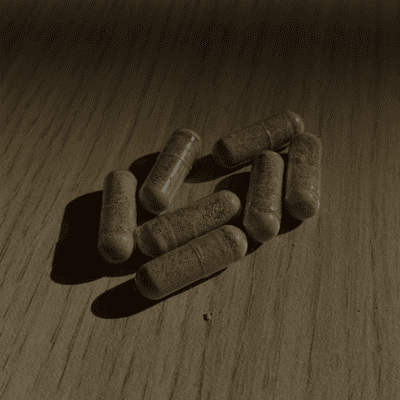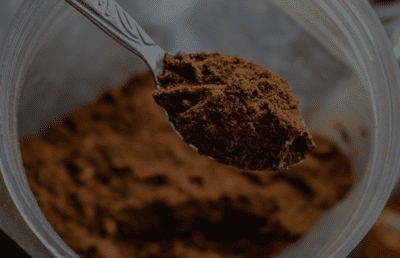Menopause, a major transition in a woman's life, is marked by numerous hormonal changes. This period is often accompanied by a silent but significant increase in chronic Inflammation in the body, a consequence of these hormonal changes.
Faced with these challenges, more and more women are turning to natural approaches to support their bodies during this period. Among these emerging solutions, medicinal mushrooms are attracting growing interest, particularly due to their ability to modulate inflammatory markers. At French Mush, we take you on a journey to discover the potential of our mushroom extracts in modulating inflammatory markers during menopause.
Understanding menopause and its link with chronic Inflammation
Menopause is a natural and inevitable stage that marks the end of a woman's reproductive capacity. However, this transition is generally accompanied by profound physiological changes that can notably influence overall health, especially by promoting a state of chronic Inflammation.
Menopause: More than just the end of menstruation
Menopause is not limited to the cessation of menstruation. It is preceded by perimenopause, a transition phase of several years where hormonal fluctuations begin to manifest, often leading to the first symptoms. Menopause itself is officially confirmed after twelve consecutive month of amenorrhea (absence of menstruation), thus marking the definitive end of ovarian function. This is followed by postmenopause, which covers all the years following this confirmation.
At the heart of these stages is a major hormonal upheaval: a significant drop in estrogen and progesterone levels. These sex hormones, once abundant, play an important role far beyond reproduction, influencing metabolism, bone health, cardiovascular function, and even mood. Their gradual decline therefore leads to a cascade of physiological implications. The impact of these hormonal changes extends to the immune system. A phenomenon of immunosenescence, a programmed aging of the immune system, is observed, which is accelerated or modified by menopause.
Chronic inflammation: A silent enemy at menopause
Inflammation is a natural and protective response of the body to an aggression (infection, injury). It is termed acute when it is a short-term reaction, essential for healing. However, when this response persists inappropriately, it becomes a chronic inflammation, or low-grade. Silent and persistent, it wears down the body and sets the stage for various pathologies.
It should be noted that during the reproductive years, estrogens play a notable protective role against inflammation. With their marked decline at menopause, this anti-inflammatory effect diminishes and promotes the establishment of a systemic pro-inflammatory state. The body then becomes more susceptible to developing and maintaining this low-grade inflammation. This inflammatory state can be objectified by the increase of certain inflammatory markers (below) in the blood.
⚠️ Glossary Point
An inflammatory marker is a substance produced by the body in response to inflammation. It is detectable in the blood (or other fluids) and serves to measure the intensity or presence of an inflammatory process.
The use of medicinal mushrooms to modulate menopausal inflammation
At menopause, the decrease in estrogen promotes the onset of low-grade chronic inflammation, which can impact quality of life and increase the risk of associated diseases. In the face of this challenge, the medicinal mushrooms offer a natural and promising alternative to support immune balance and limit inflammation.
Certain mushrooms are particularly distinguished for their targeted action on menopausal inflammation. The Reishi mushroom (Ganoderma lucidum) for example, is recognized for its adaptogenic properties: it helps manage stress, reduces cortisol, and has a strong anti-inflammatory action thanks to its triterpenes (below). It also acts on hormonal balance by modulating estrogen receptors and supporting liver function, essential for hormone breakdown.
⚠️ Glossary Point
Triterpenes are natural organic compounds belonging to the terpene family, composed of 30 carbon atoms and exhibiting anticancer, anti-inflammatory, antioxidant, antiviral, and antibacterial properties.
The Shiitake (Lentinula edodes), rich in beta-glucans like lentinan, strengthens the immune system, modulates inflammation, and offers antioxidant and antiviral properties, beneficial for urogenital health. The Cordyceps (Cordyceps sinensis) is distinguished by its energizing effect, its ability to reduce frequent menopause fatigue, and its anti-inflammatory virtues. It also acts on hormonal balance via the hypothalamic-pituitary axis.
Finally, the mushroom Chaga (Inonotus obliquus) stands out for its high antioxidant content, notably inotodiol, an anti-inflammatory triterpene. This allows it to neutralize oxidative stress and effectively support immunity. Together, these mushrooms offer a range of complementary actions to support women during menopause and limit the impact of chronic inflammation.
French Mush, we support you with quality products during this sensitive period
At French Mush, we offer you a complete range of medicinal mushrooms tailored to the specific needs of menopause. Our products come in different forms to easily integrate into your daily life: powders to mix or convenient capsules. Also know that our mushrooms come from controlled organic cultures and we use ultrasound extraction to preserve the richness of active ingredients. We are committed to offering you natural, safe, and effective solutions to navigate menopause with serenity.
Furthermore, the dosage and duration of use must be adapted to each woman. We recommend regular intake 6 days out of 7, at a rate of one dose per day (either 2 capsules or 1 gram of powder) for at least three months. This is the minimum treatment duration that allows you to truly observe the effects of mushrooms on your health.
However, even though medicinal mushrooms are generally well tolerated, we also recommend consulting a healthcare professional before incorporating a mushroom-based treatment into your routine. A professional will be able to consider potential interactions with hormonal treatments or other medications to advise you on a specific dosage.
Sources:
Therapeutic potential of mushrooms: A review on NF-κB modulation in chronic inflammation
https://www.sciencedirect.com/science/article/abs/pii/S2212429224014895
Fight Inflammation by Inhibiting NF-kB
https://www.lifeextension.asia/pub/media/magefan_blog/7_-_July3.pdf#page=45
 All our Mushrooms
All our Mushrooms
 All our Boost drinks, coffee alternative
All our Boost drinks, coffee alternative
 Gummies Focus
Gummies Focus
 All our Packs
All our Packs














 Coffee Alternatives
Coffee Alternatives
 Metabolism and weight loss
Metabolism and weight loss
 Cognitive function
Cognitive function
 Energy
Energy
 Sleep and Relaxation
Sleep and Relaxation
 Women's Health
Women's Health
 Immunity
Immunity
 Beauty
Beauty
 Detox
Detox

















